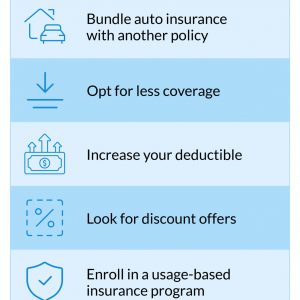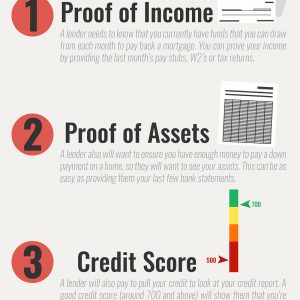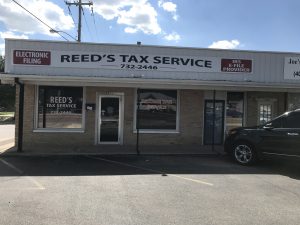“Maximize your savings with smart business expense deductions.”
Introduction
Tax deductions for business expenses are an important aspect of managing finances for any business. These deductions can help reduce the amount of taxable income, ultimately lowering the amount of taxes owed. It is important for business owners to understand what expenses are deductible and how to properly document them in order to take advantage of these tax benefits. In this article, we will explore the basics of tax deductions for business expenses.
Maximizing Tax Deductions for Business Travel Expenses
As a business owner, it is important to maximize your tax deductions to reduce your tax liability. One area where you can do this is with business travel expenses. By understanding the tax rules and regulations, you can ensure that you are claiming all the deductions you are entitled to.
Firstly, it is important to understand what qualifies as a business travel expense. These are expenses that are incurred while traveling away from your tax home for business purposes. This can include transportation, lodging, meals, and incidental expenses such as tips and laundry. However, it is important to note that these expenses must be necessary and ordinary for your business.
One of the most important things to keep in mind when claiming business travel expenses is to keep accurate records. This includes keeping receipts, invoices, and other documentation to support your claims. It is also important to keep a log of your travel dates, destinations, and the purpose of your trip.
When it comes to transportation expenses, you can deduct the cost of airfare, train tickets, and rental cars. However, if you use your own car for business travel, you can either deduct the actual expenses incurred such as gas, oil changes, and repairs, or you can use the standard mileage rate set by the IRS. For 2021, the standard mileage rate is 56 cents per mile.
Lodging expenses are also deductible, but only up to a certain limit. The IRS sets a standard rate for lodging expenses based on the location of your travel. If you exceed this rate, you will need to provide documentation to support your claim.
Meals and incidental expenses are also deductible, but again, there are limits. The IRS sets a per diem rate for meals and incidental expenses based on the location of your travel. If you exceed this rate, you will need to provide documentation to support your claim.
It is important to note that there are some expenses that are not deductible. These include expenses that are considered lavish or extravagant, such as first-class airfare or luxury hotel accommodations. Additionally, expenses that are not directly related to your business, such as personal entertainment or sightseeing, are not deductible.
Another important consideration when claiming business travel expenses is the length of your trip. If your trip is primarily for business purposes, you can deduct all of your travel expenses. However, if your trip includes personal activities, such as a vacation, you can only deduct the expenses that are directly related to your business activities.
In conclusion, maximizing your tax deductions for business travel expenses requires careful record-keeping and an understanding of the tax rules and regulations. By keeping accurate records and understanding what expenses are deductible, you can reduce your tax liability and keep more money in your pocket. Remember to consult with a tax professional if you have any questions or concerns about claiming business travel expenses.
Understanding Tax Deductions for Home Office Expenses
As a business owner, it is important to understand the tax deductions available for your business expenses. One area that can be particularly confusing is home office expenses. If you work from home, you may be eligible for tax deductions on expenses related to your home office. In this article, we will explore the rules and regulations surrounding tax deductions for home office expenses.
Firstly, it is important to understand what qualifies as a home office. The space must be used regularly and exclusively for business purposes. This means that if you use your dining room table as a workspace during the day, but also use it for family meals in the evening, it does not qualify as a home office. However, if you have a separate room in your home that is used solely for business purposes, it may qualify as a home office.
Once you have determined that your space qualifies as a home office, you can begin to consider the expenses that may be deductible. These can include things like rent or mortgage interest, utilities, insurance, and repairs and maintenance. However, it is important to note that only a portion of these expenses may be deductible. The amount that can be deducted is based on the percentage of your home that is used for business purposes. For example, if your home office takes up 10% of your total living space, you may be able to deduct 10% of your rent or mortgage interest.
Another important factor to consider is whether you are self-employed or an employee. If you are self-employed, you may be able to deduct all of your home office expenses on your tax return. However, if you are an employee, you may only be able to deduct home office expenses if your employer requires you to work from home and does not provide you with a workspace. In this case, you may be able to deduct a portion of your home office expenses as an unreimbursed employee expense.
It is also important to keep detailed records of your home office expenses. This includes keeping receipts and invoices for any expenses related to your home office, as well as keeping track of the amount of time you spend working in your home office. This will help you to accurately calculate the percentage of your home that is used for business purposes and ensure that you are claiming the correct amount of deductions.
In addition to home office expenses, there are other business expenses that may be deductible. These can include things like office supplies, travel expenses, and advertising and marketing costs. Again, it is important to keep detailed records of these expenses and to ensure that they are directly related to your business.
In conclusion, understanding tax deductions for home office expenses is an important part of managing your business finances. By determining whether your space qualifies as a home office, keeping detailed records of your expenses, and understanding the rules and regulations surrounding deductions, you can ensure that you are claiming all of the deductions that you are entitled to. As always, it is recommended that you consult with a tax professional to ensure that you are following all of the necessary guidelines and regulations.
Navigating Tax Deductions for Business Vehicle Expenses
As a business owner, it’s important to understand the tax deductions available for your business expenses. One area that can be particularly confusing is business vehicle expenses. However, with a little knowledge and planning, you can navigate this area of tax deductions with ease.
First, it’s important to understand what qualifies as a business vehicle expense. Any expenses related to the use of a vehicle for business purposes can be deducted, including gas, maintenance, repairs, insurance, and even depreciation. However, it’s important to note that personal use of the vehicle cannot be deducted.
One common method for deducting business vehicle expenses is the standard mileage rate. This rate is set by the IRS each year and is used to calculate the deductible amount for each mile driven for business purposes. For 2021, the standard mileage rate is 56 cents per mile. To use this method, you simply need to keep track of the number of miles driven for business purposes and multiply that by the standard mileage rate.
Another option for deducting business vehicle expenses is the actual expense method. With this method, you can deduct the actual expenses incurred for the vehicle, including gas, maintenance, repairs, insurance, and depreciation. However, this method requires more record-keeping and documentation than the standard mileage rate method.
If you choose to use the actual expense method, it’s important to keep detailed records of all expenses related to the vehicle. This includes receipts for gas, maintenance, and repairs, as well as documentation of any insurance premiums paid and depreciation calculations.
In addition to these methods, there are also special rules for certain types of vehicles. For example, if you use a heavy-duty truck or van for business purposes, you may be able to deduct a larger percentage of the vehicle’s cost in the first year of ownership. This is known as the Section 179 deduction and can be a significant tax savings for businesses that use these types of vehicles.
It’s also important to note that there are certain limitations on business vehicle deductions. For example, if you use a vehicle for both business and personal purposes, you can only deduct the expenses related to the business use. Additionally, there are limits on the amount of depreciation that can be deducted each year for certain types of vehicles.
Navigating the world of tax deductions for business vehicle expenses can be complex, but with a little knowledge and planning, you can ensure that you’re taking advantage of all the deductions available to you. Whether you choose to use the standard mileage rate or the actual expense method, keeping detailed records and understanding the special rules for certain types of vehicles can help you maximize your tax savings and keep your business running smoothly.





